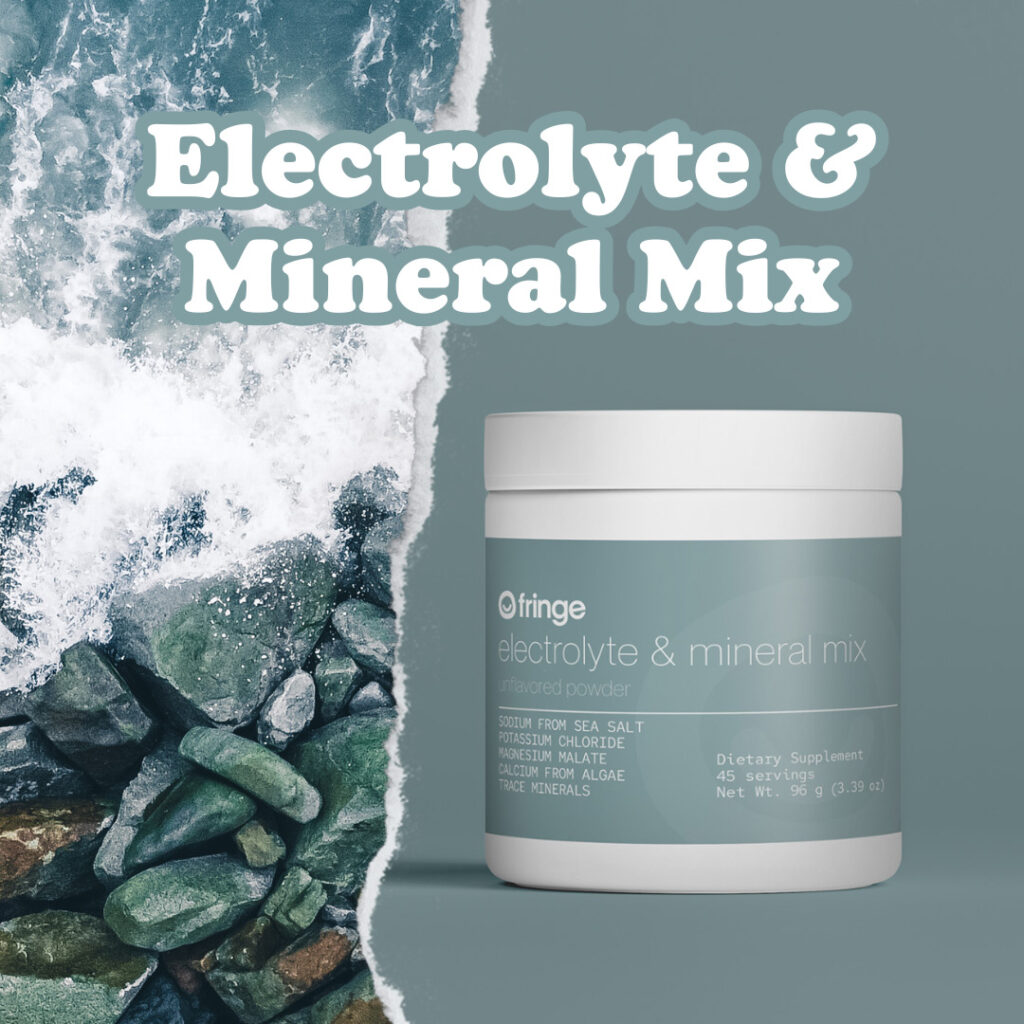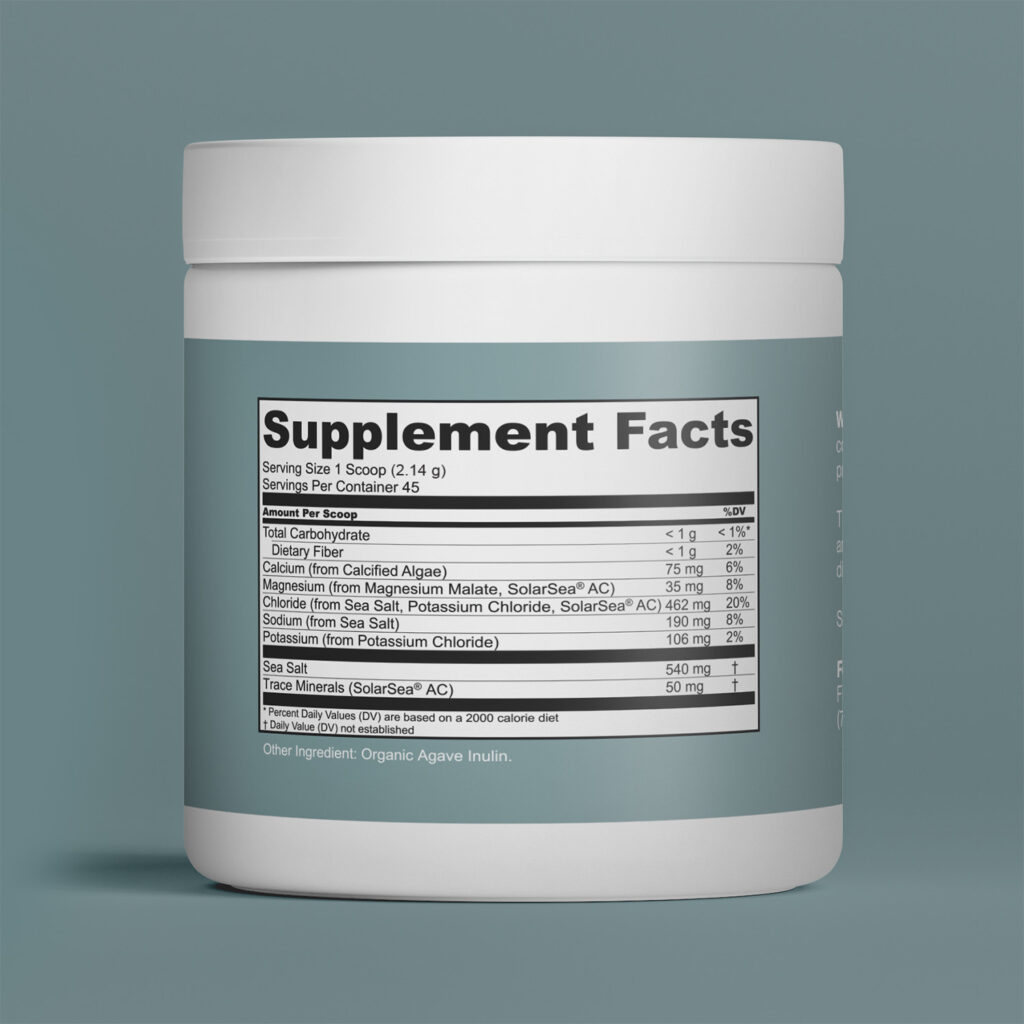The Essential Role of Electrolytes in Hydration:
Tips for Maintaining Fluid Balance
Hydration is about more than just drinking water—it’s a delicate balance of chemistry in your body. Enter electrolytes, the unsung heroes of hydration. These tiny, charged particles work behind the scenes to power your body’s most vital functions, from keeping your heart beating to fueling your muscles. Drinking electrolyte rich water makes it much easier to quench your body’s thirst and provides cells and tissues with more of what they need to function optimally.


People often turn to electrolytes when they’re sweating through an intense workout, recovering from illness, or navigating a hot summer day, but we also need them in the winter too. During cold winter months, the body’s thirst response diminishes because blood vessels constrict to conserve heat. This reduces the signals to drink water, even though the body still loses fluids. Regardless of season, electrolytes play a critical role in maintaining balance, energy, and health. But what are electrolytes, exactly, and why do they matter so much in hydration? In this article, we’ll cover the basics of electrolytes, explore their importance in hydration, and share practical tips to ensure you stay optimally hydrated no matter what you’re doing.
Electrolytes 101
Electrolytes are substances that dissolve in water to produce ions, which are charged particles. These ions conduct electricity, making electrolytes essential for a variety of biological and chemical processes. Common electrolytes include:
- Sodium (Na⁺): Vital for nerve impulses, muscle contractions, and fluid balance.
- Potassium (K⁺): Crucial for heart function, muscle contractions, and maintaining cell integrity.
- Calcium (Ca²⁺): Important for bone health, blood clotting, muscle function, and nerve signaling.
- Magnesium (Mg²⁺): Supports enzyme activity, muscle function, and energy production.
- Chloride (Cl⁻): Maintains fluid balance and aids digestion by forming stomach acid (HCl).
- Bicarbonate (HCO₃⁻): Helps maintain pH balance in the blood.
- Phosphate (PO₄³⁻): Involved in energy production and cellular function.
Electrolytes are closely related to minerals because many electrolytes are, in fact, minerals. Minerals like sodium, potassium, calcium, magnesium, and chloride serve dual roles as both essential nutrients and electrolytes. Once dissolved in the body’s fluids, these minerals become electrolytes (ions) that facilitate critical processes. This is why Fringe’s electrolyte product is named “Electrolyte and Mineral Mix”!
Electrolytes and Hydration
Electrolytes are essential for effective hydration because they help regulate the balance of fluids in and out of cells, tissues, and organs. Water alone is not sufficient for proper hydration; it needs electrolytes to ensure that fluids are distributed and utilized efficiently within the body.
Electrolytes regulate hydration in several ways:
Regulating Fluid Balance:
Electrolytes including sodium, potassium, and chloride control the movement of fluid in and out of cells. This process works through the generation of gradients, with fluid moving from areas of higher to lower concentration.
Increasing Cellular Water Absorption:
Without proper electrolyte balance, it’s difficult for water to be properly absorbed into cells. Cells must be sufficiently hydrated to function properly, so when absorption is impaired, so is function.
Preventing Dehydration:
Electrolytes like sodium and potassium work together to make sure the kidneys don’t excrete too much water, and that cells hang onto water rather than lose it and become dehydrated.
Replacing Fluid Loss:
When you lose body fluids through things like sweating or illness it’s not just water that goes, it’s electrolytes too. So, if you want to replace the fluid that is lost, you have to consume electrolytes along with water.
In simple terms, when water is consumed without electrolytes, it can disrupt the delicate balance of fluids in the body, which are a mixture of water along with a range of different ions. To be properly hydrated, you require both.
Water As Nature Intended
Electrolyte rich water is the way nature intended water to be. Pure H2O is a result of manufacturing, not nature. Water in nature also contains a wide range of nutrients in the form of dissolved minerals… aka electrolytes! As it travels over rocks and through the earth, minerals make their way into water. The composition of natural water varies widely and depends on the geology of the region it comes from. For example, calcium rich water can be found the mountains of Italy, while magnesium rich water is extracted from volcanic groundwater in Germany.

How to Stay Optimally Hydrated

Here are some practical tips to help you stay optimally hydrated:
- Listen to your body: Thirst is a natural indicator but can sometimes lag behind actual hydration needs, especially during intense activities. Stay ahead of your thirst by drinking 2-3 litres of fluid daily.
- Monitor urine color: Pale yellow indicates proper hydration, while dark yellow suggests a need for more fluids.
- Eat electrolyte rich foods: Include naturally electrolyte-rich foods in your diet, such as bananas (potassium), dark leafy greens (magnesium), and dairy products (calcium).
- Use electrolyte supplements: Supplements can be used daily to enhance the electrolyte concentration of water (especially reverse osmosis water, which is totally devoid of electrolytes). Increase use whenever you have increased fluid loss, such as when exercising, spending time in the heat, or suffering from illness. Drink electrolyte solutions during the activity (e.g., workouts) and afterward to rehydrate.
How To Choose an Electrolyte Supplement
What to look for in a product:
- A range of electrolytes, including including sodium, chloride, potassium, magnesium, and calcium.
- %DV (Daily Values) that are less than 20%; in natural water, levels will will be between 1 and 20% DV, so this is a good rule of thumb to follow.
- Simple, naturally derived ingredients, without added sugars or “natural flavors”
- Verification of purity through an unbiased chemical analysis performed by a third-party lab.

Fringe Minerals and Electrolyte Mix meets all these criteria and is a great option for both adults and kids looking to support their hydration. Simply mix 1 scoop of electrolyte powder into your water, 1-2 times per day.

about the author
Dr. Genevieve Newton, DC, PhD spent close to 20 years as a researcher and educator in the field of nutritional sciences before joining Fringe as its Scientific Director. Gen’s job is to “bring the science” that supports Fringe’s products and education. She is passionate about all things Fringe, and is a deep believer in healing body, mind and spirit using the gifts of the natural world.
The contents in this blog; such as text, content, graphics are intended for educational purposes only. The Content is not intended to substitute for professional medical advice, diagnosis, or treatment. Always seek the advice of your healthcare provider.

